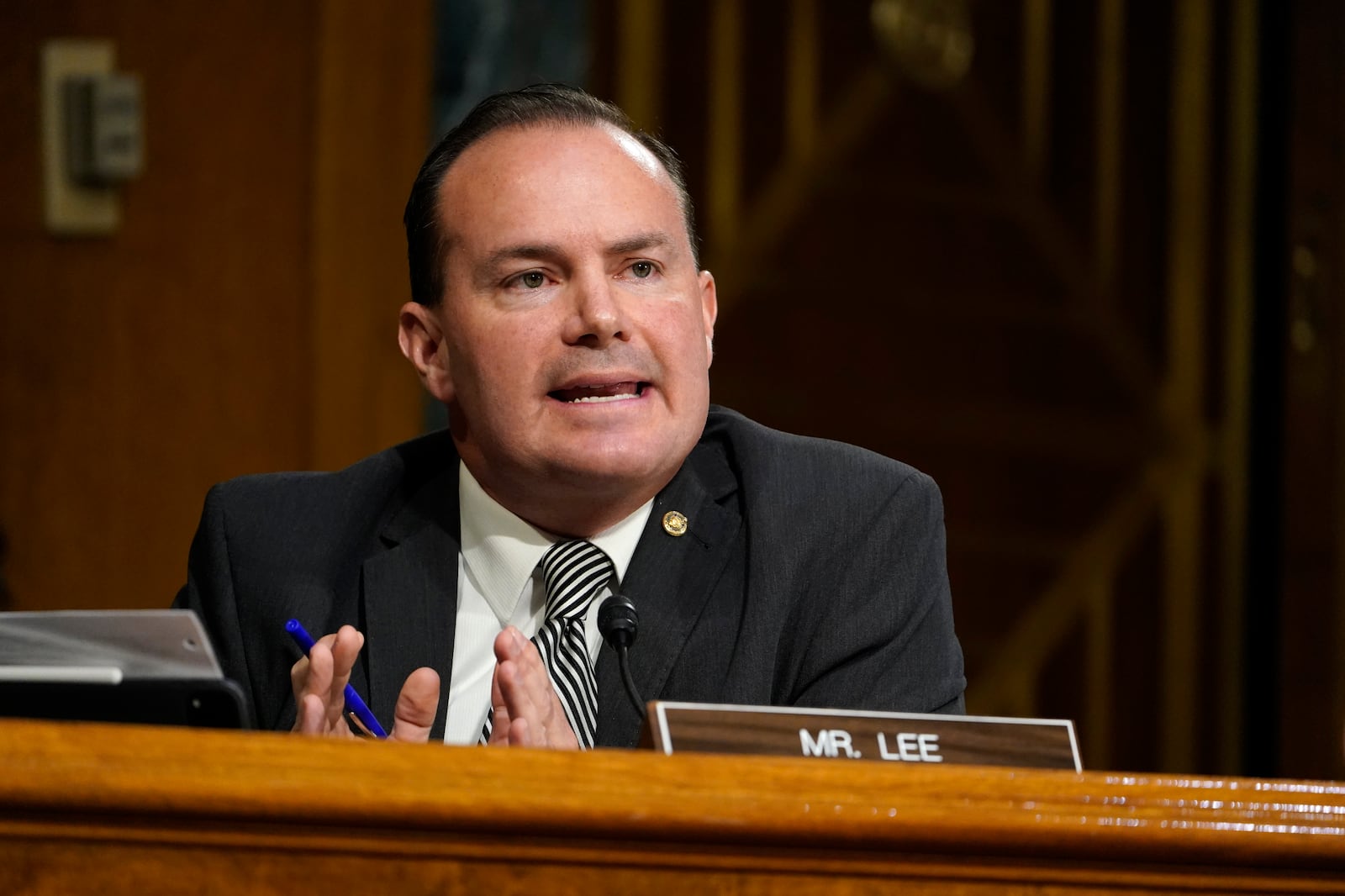Arguing that it would further divide the country, Sen. Mike Lee blocked bipartisan legislation Thursday that would create national museums dedicated to the histories of Latino Americans and American women.
The Utah Republican said on the Senate floor that the history of Latino Americans and women should be a part of the National Museum of American History, not in separate museums.
“The last thing we need is to further divide an already divided nation within an array of separate but equal museums for hyphenated identity groups,” Lee said. “At this moment in the history of our diverse nation, we need our federal government and the Smithsonian Institution itself to pull us closer together and not further apart.”
Sen. Bob Menendez, D-N.J., had sought to pass the National Museum of the American Latino Act on a voice vote. It only takes one objection under Senate rules to stop a request for unanimous consent to advance a bill. The House previously unanimously passed the measure.
“At this moment in the history of our diverse nation, we need our federal government and the Smithsonian Institution itself to pull us closer together and not further apart.” — Sen. Mike Lee
After Lee’s objection, Menendez said the Utah senator is standing in the way of the “hopes and dreams and aspirations of seeing Americans of Latino descent having their dreams fulfilled in being recognized, just being recognized.”
Menendez said the Smithsonian Institution is a collection of museums for various aspects of American history.
“I don’t know if these arguments were made against the Native Americans. I don’t know if these arguments were made against African Americans, but I don’t see them as being separate and apart,” he said. “I see them as part of the collective history mosaic that is coming together under the Smithsonian.”
Lee said the museums dedicated to Native Americans and African Americans were separately built because those groups were “uniquely, deliberately, and systemically excluded” from history.
Congress, he said, should not splinter one of the institutional cornerstones of the country’s national identity, especially at the end of such a fractured year.
“American history is an inclusive story that should unite us,” he said.
Following Menendez, Sen. Susan Collins, R-Maine, proposed the Smithsonian Women’s History Museum Act in the Senate by voice vote. She said a women’s history museum is long overdue in Washington, adding that she has worked on the issue since 2003.
“Telling the history of American women matters,” she said.
Lee blocked that measure as well.
Collins called it a “sad moment.”
“Surely in a year where we’re celebrating the 100th anniversary of women’s suffrage, this is the time, this is the moment to finally pass the legislation unanimously recommended by an independent commission to establish an American women’s history museum in our nation’s capital. I regret that will not occur this evening, but we will not give up the fight,” she said.
Collins said it seems wrong that one senator can block a bill that would have overwhelming support if it were up for a majority vote.
Sen. Mitt Romney, R-Utah, supports the proposals to create the two museums, according to a spokeswoman.
“ ... this is the moment to finally pass the legislation unanimously recommended by an independent commission to establish an American women’s history museum in our nation’s capital. I regret that will not occur this evening, but we will not give up the fight,” she said.” — Sen. Susan Collins
Lee said it’s a problem if Latino American and women’s history is being underrepresented, and that’s the issue that should be addressed. He said he’s willing to expand the American history museum with more money, staff, floor space and research to tell those stories.
Manuel Romero, former chairman of the Utah Coalition of La Raza and author of “Mi America: The Evolution of an American Family,” said Lee’s argument indicates that he doesn’t know Latino Americans’ history, adding that history books and Hollywood have also ignored it.
Romero said his teachers not only didn’t allow him to speak Spanish in school but punished him if he did.
“That type of systematic racism is told throughout our history in the United States,” he said.
Romero said it would be important for Latinos and women to have their own museums where children could learn about their histories.
The nonprofit Friends of the American Latino Museum, an organization dedicated to advocating for a national Latino museum, said in statement that it is disappointed in Lee’s “insultingly dismissive, condescending and misguided” decision to block the bill.
“Latinos across the nation have waited far too long to be represented on the National Mall, and it is disgustingly cruel to make them wait even longer,” the statement said.
Lee’s opposition to both bills greatly diminishes their chances to pass in the current Congress.
Contributing: Felicia Martinez
Correction: An earlier version incorrectly spelled Sen. Bob Menendez’s last name as Mendez.

